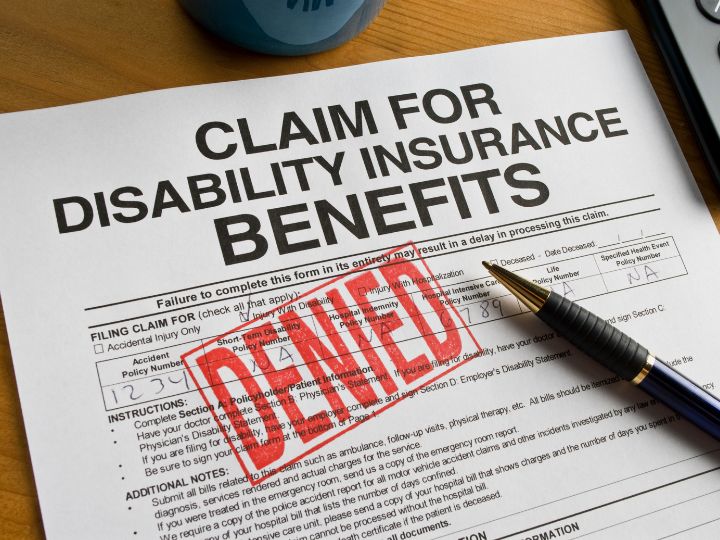Depression is a serious mental health condition that can significantly impact an individual’s quality of life, including their ability to work and maintain financial stability. When depression becomes severe and persistent, it may qualify as a disability, making the affected person eligible for disability benefits. This article will explore the process of obtaining disability benefits for depression, the criteria used to determine eligibility, and the types of benefits available.
Understanding Depression as a Disability
Depression is a mental health disorder characterized by persistent feelings of sadness, hopelessness, and a loss of interest in activities. While many people experience occasional bouts of depression, some individuals suffer from severe and chronic forms of the condition that can interfere with their daily functioning and ability to work.
The Americans with Disabilities Act (ADA) defines a disability as a physical or mental impairment that substantially limits one or more major life activities. Depression can qualify as a disability under this definition if it significantly affects an individual’s ability to perform essential functions of their job or engage in other major life activities, such as self-care, learning, or socializing.
Criteria for Qualifying for Disability Benefits with Depression
To be eligible for disability benefits due to depression, an individual must meet specific criteria set forth by the Social Security Administration (SSA). The SSA evaluates disability claims using a five-step sequential evaluation process:
Substantial Gainful Activity (SGA): The SSA first determines if the applicant is engaging in SGA, which is defined as earning above a certain monthly income threshold. If the applicant is working and earning above the SGA level, they will not be considered disabled.
Severity of the Impairment: The depression must be severe enough to significantly limit the applicant’s ability to perform basic work activities for at least 12 months.
Listing of Impairments: The SSA maintains a list of medical conditions that are considered severe enough to automatically qualify an individual for disability benefits. Depression is evaluated under Listing 12.04, “Depressive, bipolar and related disorders.”
To meet the requirements of Listing 12.04, an individual must have medical documentation of at least five of the following symptoms:
- Depressed mood
- Diminished interest in almost all activities
- Appetite disturbance with change in weight
- Sleep disturbance
- Observable psychomotor agitation or retardation
- Decreased energy
- Feelings of guilt or worthlessness
- Difficulty concentrating or thinking
- Thoughts of death or suicide
In addition to these symptoms, the individual must also demonstrate extreme limitation in at least one, or marked limitation in at least two, of the following areas of mental functioning:
- Understanding, remembering, or applying information
- Interacting with others
- Concentrating, persisting, or maintaining pace
- Adapting or managing oneself
Residual Functional Capacity (RFC): If an individual does not meet the criteria for Listing 12.04, the SSA will assess their RFC, which is their ability to perform work-related tasks despite their depression. This assessment takes into account the applicant’s mental limitations and determines if they can perform their past work or any other type of work in the national economy.
Ability to Perform Other Work: If the applicant cannot perform their past work, the SSA will consider their age, education, work experience, and RFC to determine if they can adjust to other work available in the national economy. If not, they may be found disabled.
Types of Disability Benefits Available
There are two main types of disability benefits available through the SSA:
Social Security Disability Insurance (SSDI): SSDI is a disability insurance program funded by payroll taxes. To be eligible for SSDI, an individual must have worked long enough and paid Social Security taxes. The monthly benefit amount is based on the applicant’s average lifetime earnings.
Supplemental Security Income (SSI): SSI is a needs-based program that provides financial assistance to individuals with disabilities who have limited income and resources. Unlike SSDI, SSI eligibility is not based on work history, and the monthly benefit amount is determined by the federal benefit rate and any additional state supplements.
The Application Process
To apply for disability benefits, an individual must complete an application and provide medical evidence supporting their claim. This evidence may include:
- Medical records from treating physicians, therapists, or hospitals
- Results of psychological evaluations or tests
- Treatment history and response to treatment
- Statements from the applicant, their family members, or friends describing the impact of depression on their daily life and ability to work
The SSA may also require the applicant to attend a consultative examination with an SSA-appointed mental health professional to assess the severity of their depression and its impact on their functioning.
The application process can be lengthy and complex, with many initial claims being denied. However, applicants have the right to appeal a denied claim through a multi-stage appeals process, which may include a hearing before an administrative law judge.
Maintaining Disability Benefits
If an individual is approved for disability benefits due to depression, they will need to comply with ongoing requirements to maintain their eligibility. This may include:
- Continuing to receive medical treatment for depression
- Participating in periodic continuing disability reviews to assess ongoing eligibility
- Reporting any changes in their medical condition or work activity to the SSA
Conclusion
Depression can be a debilitating condition that significantly impacts an individual’s ability to work and maintain financial stability. While obtaining disability benefits for depression can be a challenging process, it is possible for those who meet the SSA’s criteria and provide sufficient medical evidence supporting their claim.
If you or a loved one is struggling with severe depression that interferes with the ability to work, it is essential to seek professional help and consider applying for disability benefits. By understanding the eligibility criteria, application process, and types of benefits available, you can navigate the system and access the financial support you need to manage your condition and improve your quality of life.



